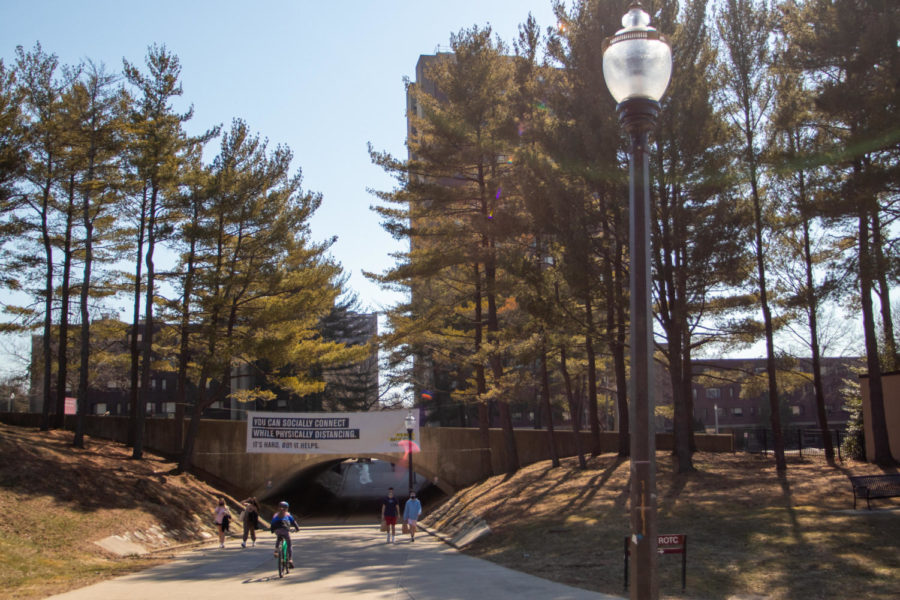Preventing college students from partying has proven difficult for the University of Massachusetts. Instead of asking college students not to act like college students, I propose a new solution. Let students party. Anarchy is exactly what we need in these unprecedented times.
Financial pressures forced the University to invite students back on campus this semester despite the fact that vaccines were not yet available. As reported by the Massachusetts Daily Collegian, the University’s efforts to reopen were disastrous. Students complained of unlivable conditions in quarantine buildings, COVID-positive students residing in dorm buildings with uninfected students, students partying without consequences — and the list goes on. These issues could easily be remedied by transitioning to a laissez-faire approach: the University must stop offering these accommodations, for the benefit of both the school and its students.
Just last month, students held a party of over 200 people in honor of Blarney weekend, resulting in another round of disciplinary actions from the Student Conduct and Community Standards Office. This is despite the University’s high expenditures on procedures designed to mitigate the spread of COVID: the University projected a of $18.5M this semester on routine asymptomatic testing, quarantine and isolation, and contact tracing.
These funds come at the expense of loyal faculty and staff. The University off 244,000 and furloughed 1.5M full-time equivalent employees during a pandemic and an economic recession akin to The Great Depression: all of which could have been avoided.
It’s time the University stops throwing money at preventing the spread of COVID-19 and address the root of the problem: all students on campus must become immune to the virus, and life can resume as normal. In order to achieve that, the University must take this opportunity to lock students in dorm buildings and encourage them to contract the virus, once and for all. I urge the University to divest from routine asymptomatic testing and contact tracing, and instead prepare for an influx of quarantine meal deliveries.
In anticipation of mental health concerns, I encourage the University to provide remote psychological services through CCPH, as well as alcoholic beverage deliveries to those over 21. Alcoholic beverages are an essential social lubricant, which will both accelerate the spread of the virus and lower students’ risk of depression.
In fact, this creative solution will likely improve students’ mental health tenfold. Students report adverse effects stemming from strict COVID guidelines. The most common narrative is burnout from lack of time off: the University eliminated all three-day weekends and holiday time off in an effort to prevent students from traveling and spreading the virus. While this attempt was well-meaning, it resulted in students suffering from extensive stress. One student wrote on Reddit, “I’m completely burnt out, failing tests, can’t finish assignments, [and] haven’t left my apartment for 3 days.” Achieving herd immunity would allow the campus community to resume life as normal—including restoring three-day weekends—offering students the ability to take some much-needed time off from their studies.
This solution also offers financial benefits for both the University and the campus community. Offering students the ability to return to life as normal would be a strong incentive for students to live on campus, allowing the University to recoup housing and dining funds. In turn, the University would be able to reinstate furloughed employees to support the campus population.
According to the New York Times, only 100 out of 535,000+ students who contracted COVID-19 died from it. Given that college students are essentially immune to the virus, this creative solution offers the campus community social and financial advantages with essentially no risks.



















